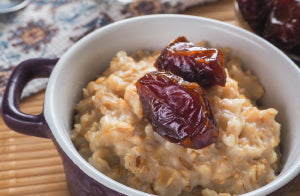Nutrition plays a vital role in a healthy pregnancy – that’s no secret. Some nutrients get a lot of attention, like folate, iron, and omega-3 fatty acids, while other important nutrients fly under the radar.
Although choline is an essential nutrient (especially during pregnancy), it doesn’t often get the recognition it deserves. Many have never even heard of choline, but that changes now. Find out why this nutrient should be an important part of your food and supplement routine.
What is Choline?
Choline is a vitamin-like nutrient that helps support cell membrane formation, healthy metabolism, and liver health.* It also plays an important role in brain health and helps support memory, mood, and muscle health.*
Although your body can make small amounts of choline, it cannot make enough for your body to function properly. Choline-rich foods and supplements can fill in the gaps and help you meet the rest of your choline needs.
How does choline benefit your baby’s development?*
Consider choline a cousin to folate – they’re not quite the same, but they share some traits and functions. Similar to folate, choline helps support a healthy brain, neural tube, and spinal cord development.* Choline may also help support brain functions like learning and memory.* Overall, adequate choline intake can help support a healthy pregnancy.*
How much choline do you need during pregnancy?
Choline needs are higher during pregnancy than at almost any other time in a woman’s life, second only to breastfeeding. The Adequate Intake (AI) for choline during pregnancy is 450 mg per day.
About 90–95% of pregnant women don’t get enough choline through their diet alone. Most prenatal supplements also don’t contain significant amounts of choline, which can make it difficult to reach your choline goal. This issue has gained traction within the medical community, and the American Medical Association has voiced its support in recent years to include choline in prenatal vitamins.
What foods are high in choline?
Rich food sources of choline include beef, poultry, liver, egg yolks, and dairy products. Some plant foods also contain choline, such as soybeans, peanuts, quinoa, potatoes, and cruciferous vegetables, like broccoli and brussels sprouts.
How can you make sure you get enough choline?
Focus on food first. Choose choline-rich foods at each meal and snack to help increase your choline intake. If you need some inspiration for ways to include high-choline foods in your diet, check out the recipe below. Quinoa, sunflower seeds, and wheat germ skyrocket the choline content of this oatmeal, and it’s full of fiber to keep you satisfied until it’s time for a mid-morning snack.
Oatmeal with Quinoa, Dates and Sunflower Seeds
Ingredients:
- ½ cup cooked quinoa
- 1/3 cup dry oatmeal
- Dash salt
- 1 teaspoon light butter
- 1 Medjool date, chopped
- 2 tablespoons sunflower seeds
- 2 tablespoons wheat germ
Directions:
- Prepare quinoa and oatmeal according to package directions.
- In a bowl toss together quinoa, oatmeal, salt, and light butter.
- Add the chopped date and sunflower seeds and stir together.
- Sprinkle wheat germ over the top.

For more information, follow us on Facebook, Instagram, and Twitter @Theralogix!
